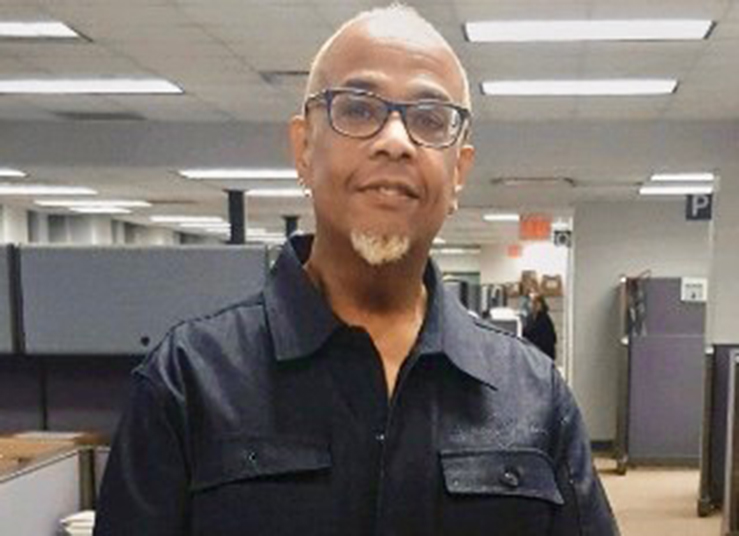News

Love Is (Almost) All You Need
A foster parent has a knack for steering troubled youth to the right path.
Everybody has a calling, and for 61-year-old Guy Bryant, his gift is caring for troubled youth. By day, he’s a youth advocate for the New York City Administration for Children’s Services (ACS). The rest of the time he’s a loving foster parent and mentor to teenage boys and young men whom he helps overcome tumultuous pasts. “I know that I connect well to troubled kids,” Bryant says. “It is the thing I do best.”
Since Mr. Bryant became a Rising Ground foster parent in 2007, he has opened his heart and home to an estimated 50 boys in foster care, all of whom have grown into responsible young men. One is a senior IT programmer at the United Nations; another is a happily married barber with six children. One is a baggage handler at American Airlines, and another is a Starbuck’s manager.
“With foster kids, nobody gives them a chance,” he says about the youth he has supported. “They need somebody who can try to understand where they are coming from.”
It’s hard to find foster parents willing to support teenagers, and harder still when they are teenage boys. That’s why Rising Ground turns to Mr. Bryant when they have hard-to-place teens in need of a nurturing home. He currently has two 20-year-olds in his care, but often there are others. Every kid he has ever supported has been given his own key to keep to his East Flatbush apartment.
“He has a knack for this work,” says Amiee Abusch, Vice President of Family Foster Care and Adoption at Rising Ground, which teaches adults how to become a foster parent. “He is soft-spoken and calm and full of love. His approach and manner are a salve to adolescents who have experienced trauma and don’t trust adults. He really turns them around.”
The “Mr. Bryant Approach”
Mr. Bryant learned from his parents that every person has value, so he knows his kids can be successful, he says. He was raised in a Brooklyn brownstone with his family living on one floor and his aunts and their families on the two other floors. He says it was a loving home with an open door to everyone in the neighborhood.
“It was the ‘Kool-Aid™‘ house, because people would come to sit on our steps in the summer and drink Kool-Aid. If you had no place to go, you could come to my house, eat, take a shower. At any given point, I’d wake up in the morning and there would be somebody on the couch sleeping.”
Mr. Bryant has worked in human services for 41 years and taken hours of foster parent training classes at Rising Ground, so he knows a thing or two about connecting with kids. In talking to him about what he does, it soon becomes clear that he uses a specific approach that incorporates three things: Acceptance. Love. Planning. Here’s how he does it.
Acceptance
“First, I approach [a teen’s] problem head on. I’m not going to beat around the bush,” he says. “When I meet kids, I’m going to bring it up right away. I tell them that these are the rules, and if they follow the rules, they are going to be able to do such and such. If they don’t follow the rules, then they can’t do such and such. But your past behavior, I want you to throw it away.” Although Mr. Bryant follows up with serious talks about the teens’ behavioral challenges, he doesn’t keep reminding them of past mistakes. ”Why would anyone want to be constantly reminded of their past?”
Show Your Love
The second important part of Mr. Bryant’s approach is that he regularly tells kids that he loves them. He doesn’t do it right off the bat, but waits until he knows more about them and sees what they do. Then he might start by saying, “I love the fact that when I go into your room your bed is always made. I love the fact that you take a shower every morning.” He explains: “Love is a word that people respond to. Add that word to what you say, and that kid starts to feel good about himself. The fact you are using the word love. They may have never heard that before.” He advises parents to “add that word in like you add sugar to your coffee.”
Plan for the Future
The third component of Mr. Bryant's foster parenting success is helping youth develop a plan. “A lot of people have a plan, and it doesn’t always go that way, but kids in foster care don’t have a clue about what they are going to do. But I tell my kids, ‘Those who fail to plan, plan to fail.’ I ask them, ‘What’s your plan? How are we going to do it.’ I don’t say how are you going to do it.’ And we make a plan together.”
As for his future, Mr. Bryant wants to continue to support at-risk teens in foster care and mentor his adult kids. He also will continue to take new Rising Ground foster fathers under his wing, helping them through foster parent issues as they adjust to having a newcomer in their home. “I say to them, ‘Don’t be afraid. Don’t be afraid to show love,’” he explains. He tells it to them straight: “These kids need you!”
For more information on becoming a Rising Ground foster parent, click here.
